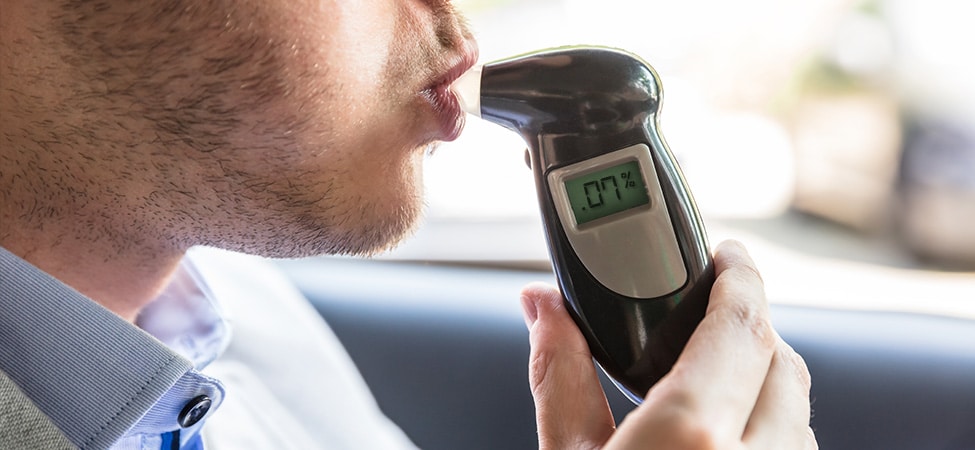Home | How an Attorney Can Help Refute a Breathalyzer Test in Indiana
Legal Blog
How an Attorney Can Help Refute a Breathalyzer Test in Indiana
06 December 2017 | Alcohol, Legal Blog,

People make mistakes. However, machines can make mistakes, as well – often in large part due to how they are programmed, managed, and maintained. When it comes to breathalyzer machines and the results they provide, this fact is no less true. As a driver submitting to a breathalyzer test, it’s important to understand that the results may be subject to legitimate challenge by a skilled DUI attorney in a court of law.
Have you been charged with a DUI in Indiana? If so, you need a knowledgeable and aggressive Indianapolis DUI lawyer to defend you against the conviction and penalties you are now facing. Attorney Sean Hessler is the experienced defense attorney who can provide you with the intelligent representation you need at this critical time.
Contact Hessler Law today at (317) 886-8800 request a free consultation about your case.
If you are stopped and detained by law enforcement for suspicion of driving under the influence of alcohol, an officer at the scene may ask you to take a breathalyzer test to measure your blood alcohol content (BAC). The breathalyzer device analyzes your breath as you blow into the device for amount of alcohol it contains. The results of the test are used to determine if the level of alcohol in your blood is over the legal limit.
Although not as reliable and accurate as a blood sample, breathalyzer results can provide a general estimate of BAC through the breath sample provided.
A breathalyzer test is subject to error due to the fact that the actual amount alcohol exhaled from a person’s lungs can vary due to various factors, including body temperature and respiration rate. Therefore, the results provided by a breathalyzer test can be faulty.
A skilled DUI lawyer, can often build a strong defense to fight the breathalyzer result evidence presented by the prosecution.
There are certain breathalyzer test issues which can occur more commonly, and serve as important evidence for the defendant. These include:
Pre-existing Substances in the Mouth
At times, substances in a person’s mouth that contain alcohol can produce a false breathalyzer reading on the higher side. The close proximity of the substance containing alcohol to the breath-reading instrument can trigger a stronger reading than the actual breath provided. Substances such as mouthwash and toothache medicines can cause this error. Even body functions such as burping or vomiting immediately before taking a breathalyzer can skew the results. If the test subject is on a diet involving significantly low carbohydrate restrictions, faulty test results can also occur.
Police are required to observe a test subject for approximately 15 minutes prior to administering a breathalyzer test to ensure the person does not belch, or regurgitate or place something in their mouth that may produce a faulty test result. A failure of the officer to follow this protocol can invalidate the breath test results. If this occurs, a dismissal of the case may occur due to lack of sufficient evidence.
Improper Calibration
One of the common issues with breathalyzer accuracy is the failure to properly calibrate the device. These devices must be calibrated on a routine basis and receive the necessary maintenance to ensure they provide accurate results with each use. Without proper maintenance and calibration, breathalyzer test results can be challenged and discredited in the courtroom.
If your defense attorney can demonstrate that prescribed calibration procedures were not followed, the court can deem the breathalyzer results inadmissible. As well, inadmissibility of test results may occur if the device can be proven to have produced faulty readings on a consistent basis.
The manner in which your attorney can refute the results of your breathalyzer is by obtaining calibration and maintenance records for the device. From there, your legal counsel must prove that the device was not calibrated properly to produce accurate results.
Medical and Health Issues
As a driver submitting to a breathalyzer test, if you have one or more health or medical issues that may affect the results of the test, your attorney may be able to demonstrate this fact in court. Skewed test results can occur as a result of health conditions such as diabetes and acid reflux disease.
Attorney Sean Hessler is a highly skilled and experienced legal advocate who understands the details of how OWI tests are conducted, and how to build an effective defense on your behalf against any subsequent charges filed against you. If you or a loved one are facing DUI charges in Indiana, call Hessler Law today to set up a free case consultation.
Contact our office today at (317) 886-8800.